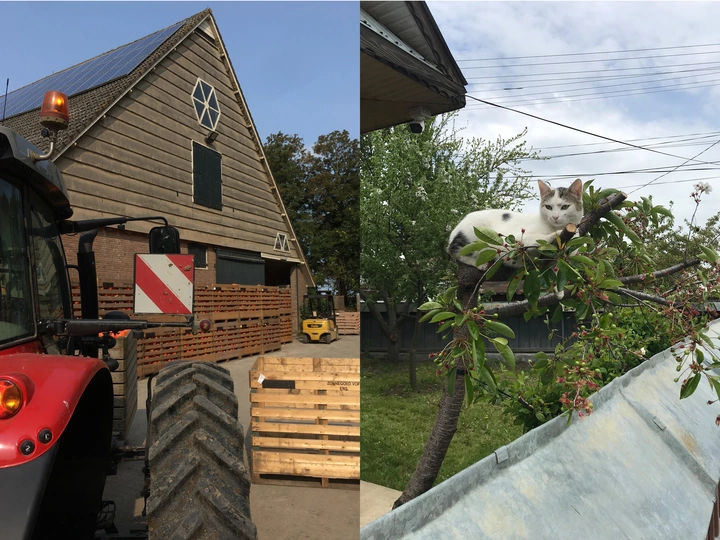Diasporic Attachment & Post Socialist Ruralities

Ioana Lupascu (RO) is a cultural worker whose practice unfolds across workshops, kitchens, (collective) writing, and self-publishing.
Informed by diasporic attachments and a commitment to decentralised modes of making, Ioana uses tactile, low-barrier tools like mapping, collage, and print to foster spaces for collective storytelling. As a member of Seasonal Neighbours, they explore rurality, migration, seasonal labour, and collective memory through autofiction and writing. They host writing groups, care for Kiosk Bookshop in Rotterdam, and run Fleeting Desires, a travelling poetry library.
Currently supported by CBK Rotterdam, their most recent research project, Writing Queer Ruralities, centres queer and diasporic voices tied to Eastern European post-socialist landscapes, working to write rural experiences into the printed page.
They hold a Master’s in Architecture from UAUIM (RO, 2014) and an MA in Art Praxis from the Dutch Art Institute (NL,2022).
"I am looking at her looking at them looking at me" is a three-chapter audio walk (60 minutes total) exploring the social and architectural impacts of seasonal migration between Romania and the Netherlands. Rooted in the central question "How long is the journey?", the work examines what (seasonal) work abroad means for the places of departure and arrival.
The project emerged from my own two-week experience picking crops in Flevoland in September 2020 through deseizoenarbeiders.nl, which led me to question my relationship to rural Romania and the notion of a diasporic worker tied to home. The audio walk - part fiction, part fact, part memories and abstractions - investigates how stories of seasonal work abroad shape landscape, architecture, habits, food, and conversations in my childhood village.
My research process included keeping journals during fieldwork in the Netherlands and during the two research trips to a village in Neamt County, Romania (April-May 2021 and September 2021). I was in conversation with farmers, co-workers, and other seasonal workers in Flevoland, and interviewed the vice mayor, priest, family, friends, and shopkeepers in Neamt. The script was developed through constant dialogue with my mother and feedback from members of the Seasonal Neighbours collective.
The work was first exhibited at Z33 in Belgium as part of a collective exhibition by Seasonal Neighbours 'Our Invisible Hands.' The concept and text of the audio walk are developed by Ioana Lupascu, sound composition by Maoyi (Peixuan Qiu), and translation/Dutch voice are executed by Hannah Kalverda.
The project has deepened my understanding of diasporic relations and their ties to Romanian villages. I plan to continue writing about this topic, exploring how temporary return creates changes in both places of departure and arrival.